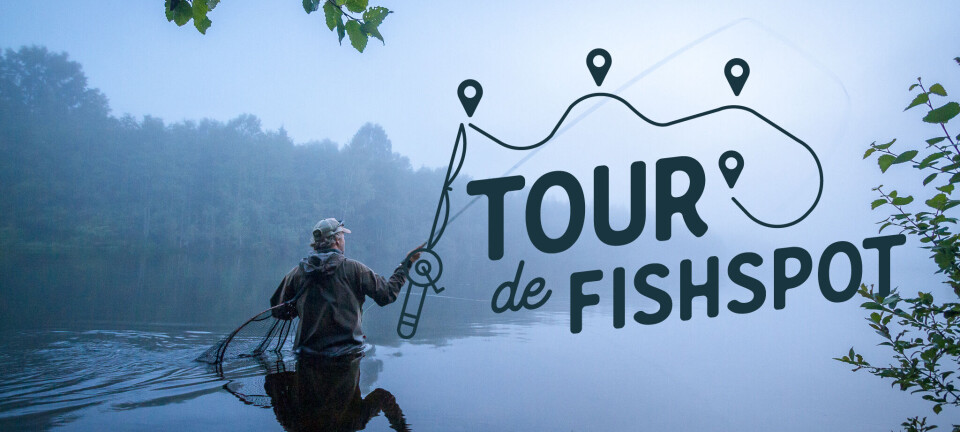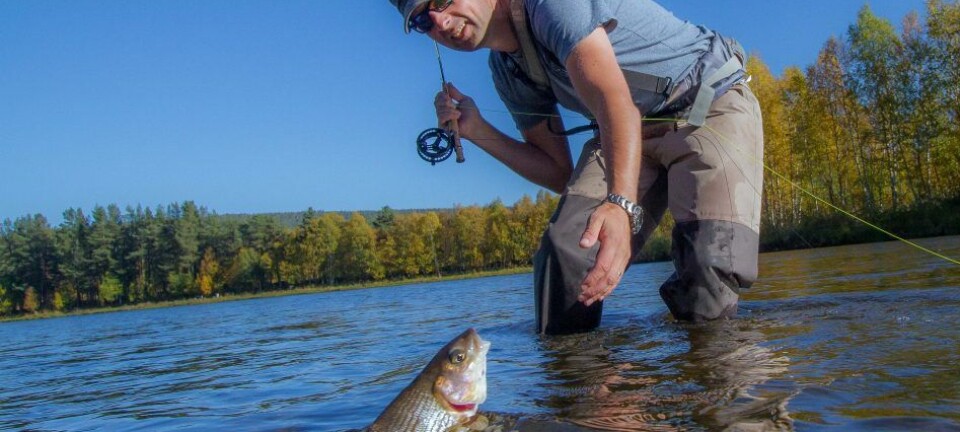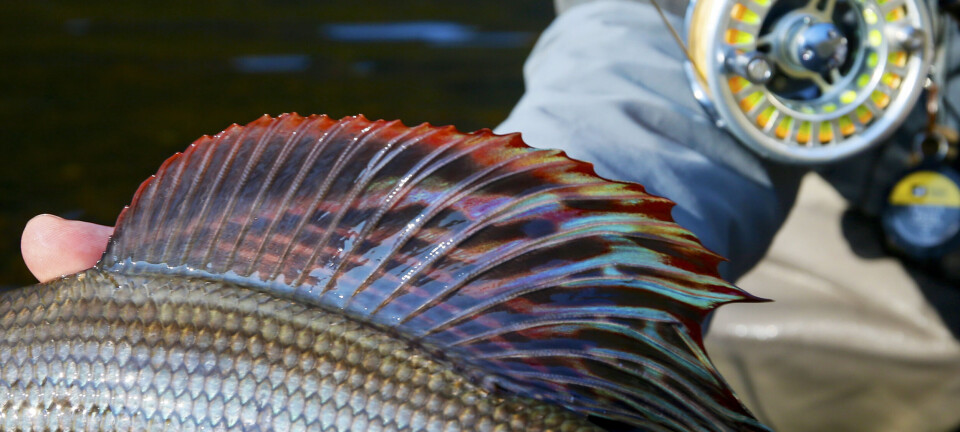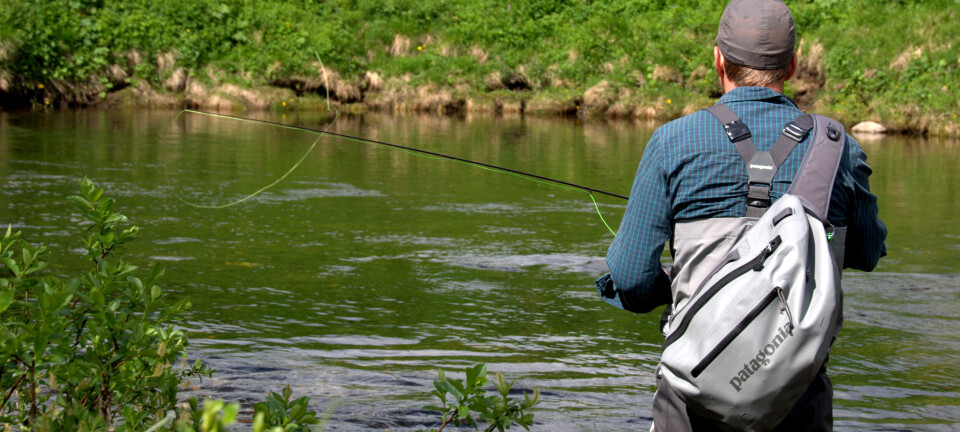Stage 11 – Rena and the ridiculous hatch
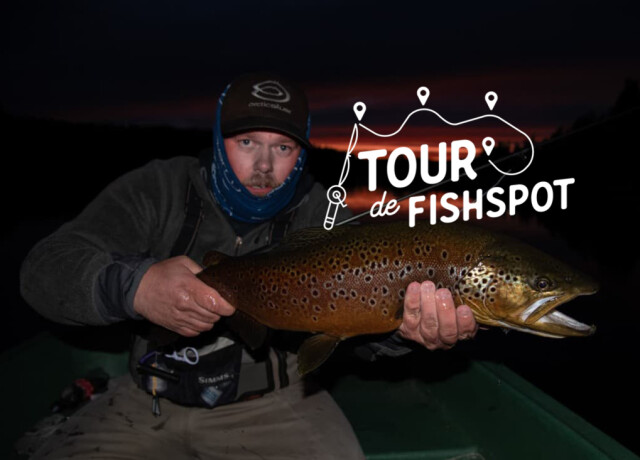
The journey is soon over, but we saved some of the best for last. The wonderfully chaotic and intense caddis pupae madness of the Southern Rena river, sometime late July or early August.
The last time we were here, at the start of our journey, we experienced high water levels and drift fished with streamers. Now we are sneaking along the banks long into the night. The large trout in Rena tend to be tucked right into the banks, most often along thick vegetation.
This type of fishing requires a careful approach. We typically fish upstream with short casts. When the caddis pupae start swimming to the banks you will see loads of big fish rise aggressively to these highly mobile insects.

Get used to the darkness
Fishing during the day can also be ok, but nothing beats the pupae-madness of the darker hours. Even the sound of rising fish can be intimidating, and people who have issues with a multitude of bugs crawling everywhere might consider other hobbies then night-fishing during Rena's ridiculous hatch.
The river is wadeable, but relatively large You’ll often need to wade a ways in order for nymph fishing. Grayling begin to school up when the water levels drop. If you first find one you usually find a bunch of them. Take advantage of darkness when hunting for Rena’s big trout.
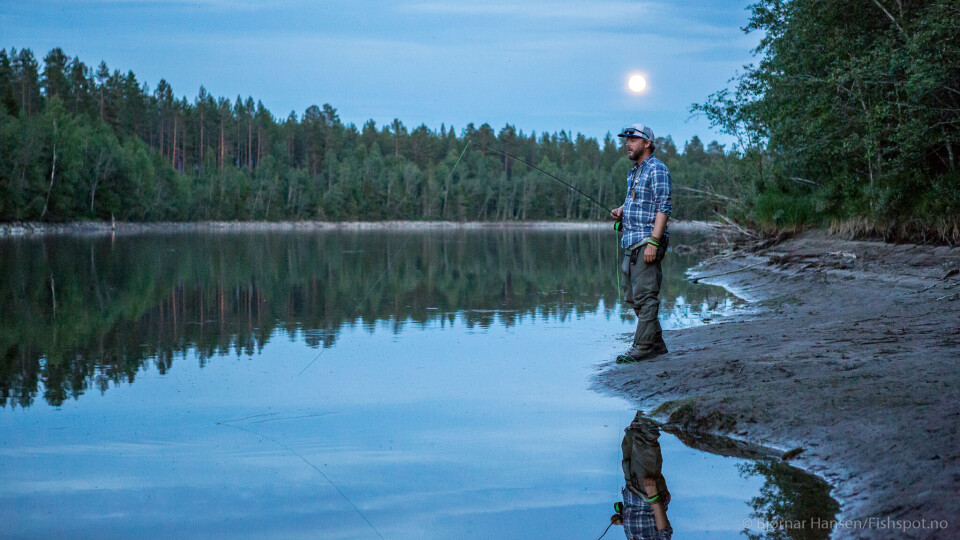
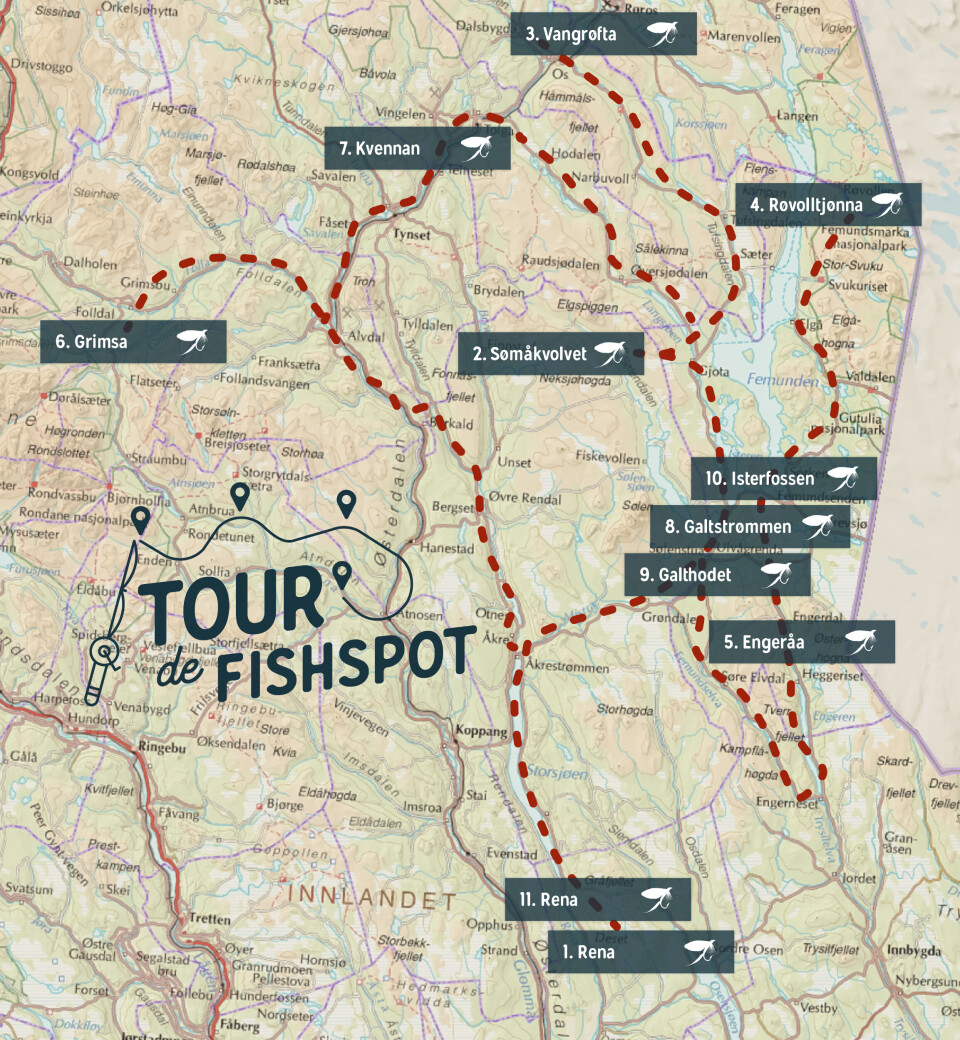
Find the fish first
We begin at the 5 km long fly fishing zone at the top of the river stretching from Storsjødammen to Rødhammeren. If there isn’t much happening here, the conditions can be different further downstream. The hatches on Rena can be highly localized, so move around if nothing is happening where are.
Blind fishing is generally a bad idea if you're targeting big brownsurface feeders. Wait and if you have seen a ring fish that seems promising, try to keep the numbers of casts below two per rise.
Equipment
Light fly rods in wts 3-5. Preferably 10-11′ nymphing rods for short line nymphing. Use a 6 wt. for casting big streamers to trout.
Fishing license and regulations for Renaelva found here
Plan B
If Southern Rena (Renaelva) doesn’t deliver, Northern Rena has a fly fishing zone just up the valley. This area also receives much less fishing pressure. The water is clear and the fishing challenging, but there are big trout and grayling to be found. The fly fishing zone is 4.7 km long and easily accessible.
